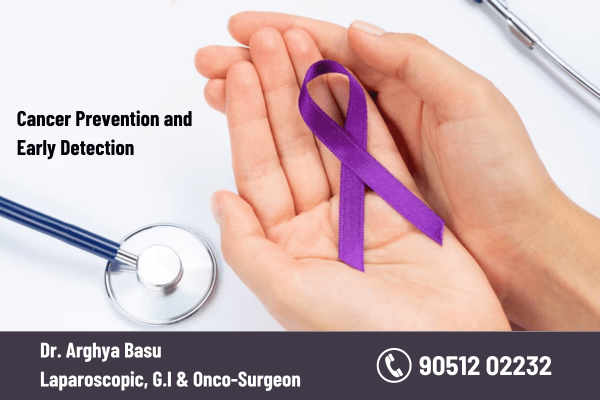Cancer Prevention and Early Detection

Cancer is an insidious illness that impacts countless individuals globally, causing immense suffering and leaving an indelible mark on communities. While treatment options have improved over the years, prevention and early detection remain crucial in the fight against cancer. By adopting proactive measures and screening methods, individuals can significantly reduce their risk and improve their chances of survival. This article explores the importance of cancer prevention and early detection, highlighting key strategies for a healthier future. Consult the best cancer surgeon for the proper treatment.
What are the Cancer Prevention Steps?
Cancer prevention focuses on reducing the risk factors associated with cancer development. Individuals can take proactive steps to minimize their chances of developing the disease by making healthy lifestyle choices.
Mention the Healthy Lifestyle Choices
Engaging in a healthy lifestyle can greatly contribute to cancer prevention. This includes:
1. Balanced Diet: Consuming Daily consumption of vegetables, fruits, lean protein, and grains can give required nutrients essential nutrients and antioxidants that help prevent the development of cancer.
1. Regular Exercise: Participating in consistent physical activity can significantly reduce the likelihood of various cancer forms. Strive to accumulate a minimum of 1.5 hours of moderate exercise or 1 hour of high-intensity workout every week exercise every week to enhance your cancer prevention efforts.
1. Tobacco and Alcohol Control: Avoiding tobacco in any form and limiting alcohol consumption can significantly Reduce alcohol intake can lessen the risk of developing various variants of cancer, including lung, liver, and breast cancer.
What is the Significance of Early Detection?
Timely identification assumes a pivotal role in enhancing the prognosis of cancer. Early detection is instrumental in improving treatment outcomes and increasing the chances of successful recovery. Detecting cancer at an early stage often allows for more effective treatment and a higher chance of survival.
1. Screening Programs
Screening programs are designed to identify cancer in individuals who have no symptoms but may be at high risk. Common screening tests include mammograms for breast cancer, Pap smears for cervical cancer, colonoscopies for colorectal cancer, and prostate-specific antigen (PSA) tests for prostate cancer. Regular participation in these screening programs is essential, especially for individuals with a family history of cancer or other risk factors.
1. Recognizing Warning Signs
Being aware of the warning signs of cancer is vital for early detection. Some general signs to watch out for include unexplained weight loss, persistent fatigue, changes in the skin, unusual bleeding, lumps or masses, and persistent pain. If any of these symptoms persist, it is crucial to consult a healthcare professional promptly.
1. Self-Examination
Self-examination techniques can aid in the early detection of certain types of cancer. For instance, breast self-exams enable individuals to detect unusual lumps or changes in their breasts. Testicular self-exams can help identify abnormalities in the testicles. Regular skin self-exams can also aid in the detection of skin cancer.
Conclusion
Cancer prevention and early detection are vital strategies in the battle against this devastating disease. The best chemotherapy doctor in Kolkata are available for the proper treatment of cancer treatment. By adopting a healthy lifestyle, participating in screening programs, recognizing warning signs, and performing self-examinations, individuals can incorporate necessary steps to lessen their cancer risk and improve their chances of early detection. Remember, early detection can save lives, making it crucial to prioritize preventive measures and remain vigilant in our pursuit of a healthier future.
FAQ –
1. How to prevent cancer in the early stage?
People who have cancer should follow a healthy lifestyle to prevent cancer in the initial stage to prevent cancer in the early stage. This includes consuming a balanced diet, engaging in getting engaged in everyday’s workouts, not consuming tobacco and alcohol, participating in recommended screening programs, recognizing warning signs, and performing self-examinations.